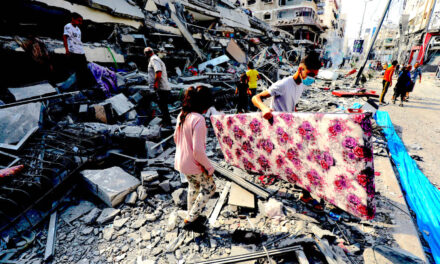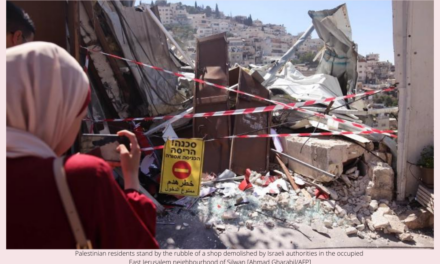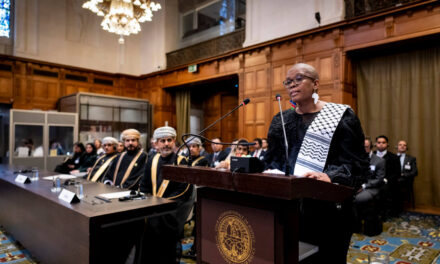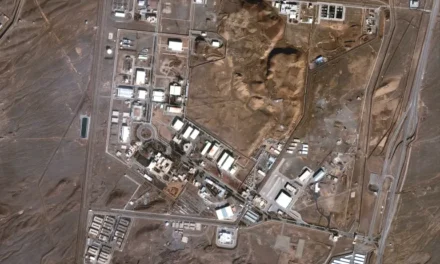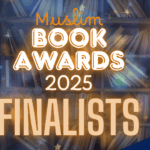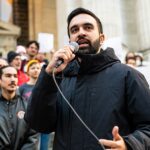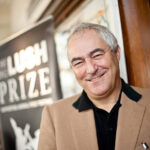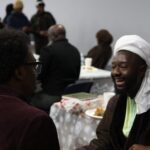Reem Hamadaqa with her parents at her graduation ceremony from the Islamic University of Gaza in 2021. Both of her parents were killed in an Israeli airstrike in March 2024.
I had always believed that education was my lifeline. Pursuing higher education is a means to resist, to survive, and to preserve the stories of my people. I have always seen myself in classrooms and libraries, surrounded by professors and peers, working toward a future fruitful of research and education after years of study and dedication. Then, in a single night, everything collapsed.
The sudden shift between February and October 2023 still puzzles me. How can one go from a university desk full of potential and academic ambition to an inhumane hospital bed, deprived of medical care, prevented from undergoing urgent surgery, and panicking over the loss of her family? Thoughts wandered in my head.
An Israeli airstrike killed my parents, my sisters, among fourteen beloved people of my family, dearest than my soul. I survived. I got injured. And I was forced to stay in a hospital bed with no certainty of safety, yet unable even to walk steadily. My mother died believing I was safe. She did not know that I had been denied urgent surgery, and that my dreams were suspended in a war I could not control. She died believing I was on my way to finishing the academic path she once proudly encouraged.
Yet even in that chaos, I refused to stop. I wrote, studied, and applied myself to every course I could complete from my tent in Al-Masawi. Electricity was no longer a term we could brag about, and the internet was unreliable, yet I went on. My grades remained high. My master’s coursework continued, with a 90.2% GPA. I did not allow the ruins around me to erase my purpose. My two sisters were denied their right to life, to education, to simple dreams. I had to go on, for them, and for me.
Then, a spark of hope shone for me: the Palestinian Students and Scholars at Risk (PSSAR) initiative. Through their support and guidance, I was admitted to pursue a master’s degree in Translation Studies at the University of Alberta, Canada. This opportunity was more than an academic chance; it was proof that the world could still recognize our rights to education, even when our lives were under siege and our souls exhausted to look forward.
But the borders remain closed. I am still in Gaza, carrying both my grief and my determination. I am not alone in this path. Another 70 Palestinian students have been admitted to different prestigious Canadian universities, yet are still trapped in Gaza under nonstop bombardment, facing famine and displacement by themselves.
Their dreams are a crossing away, a call away – we just need the Canadian government to take a strong stance in support of Gazans’ right to education. All of the students currently barred from leaving Gaza to continue their studies are urgently calling on Canada’s Foreign Minister and the Minister of Immigration, Refugees and Citizenship (IRCC) to evacuate us to a third country so we can finalize the biometrics and begin our studies in September 2025.
Here are glimpses of those brilliant students’ stories: Aya, Nahed, and Rawan, representatives of those 70 diligent scholars.
Gaza’s top physics graduate to Waterloo Labs

Aya, whose last name is being withheld for security reasons, graduated in 2020 from Al-Azhar University as the top physics student across the entire university, with a GPA of 97.1%. She continued with a master’s in physics, graduating in 2025 with a GPA of 93.9%, all while working as a teaching assistant in the Faculties of Engineering and Science.
“I loved my routine,” Aya recalls. “I learned so much and seized every moment.” Her teaching career wasn’t just a job; it was a source of purpose. “Every day was a new experience, a new treasure I explored with my students,” Aya says. At the same time, she eagerly worked on her own thesis, then successfully cultivated the fruit of her scientific work during the war in February 2025.
When the war broke out, Aya’s family home was bombed, and she was displaced multiple times. Her parents were evacuated to Italy for her mother’s medical treatment, leaving her to face instability alone. Amid constant blackouts and the absence of a safe place to live, Aya still managed to defend her master’s thesis, prepared every detail by herself, and got strong feedback from her supervisors.
This fall, she is supposed to begin a master’s in Applied Mathematics in Physics at the University of Waterloo, opening a new, shining chapter of her life. She has already published scientific papers and dreams of returning to Gaza to teach the next generation of students. But today, instead of preparing for her labs in Canada, Aya walks long distances just to charge her laptop and connect to the internet.
“This opportunity is not just for me,” she says. “It’s for Gaza.”
An aspiring pharmacist’s path to Alberta
Nahed graduated from Al-Azhar University in 2025 with a Bachelor’s degree in Pharmacy, where he excelled academically, positioning himself to be a future pioneer in his field. During his studies, he was selected for an exchange program in Egypt, where he trained at The Ahram Canadian University and Al-Andalus Pharmaceutical Company. He was the first Palestinian Pharmacy student to gain dual training in both industrial and research pharmacy, broadening his vision of international academia.

Nahed during his training at Ahram Canadian University, Egypt, 2023
Upon returning to Gaza, Nahed’s career quickly excelled. He was elected as Student Charge Officer at the Palestinian Pharmaceutical Students’ Federation, representing students across Gaza and the West Bank. But as war broke out, his plans for international conferences were halted. Despite this, he continued facilitating exchange opportunities for peers abroad, proving himself a committed leader.
Nahed’s research passion lies in integrating artificial intelligence and software into pharmaceutical labs and drug manufacturing, when such fields are still absent in Palestine. In 2023, he led a team in a global training on drug design, winning a competition and beginning research collaborations with international professors.
Even amid war, displacement, and loss, including the death of his uncle a night before an important interview to get the admission, Nahed chose to continue his path. He completed his courses online despite constant blackouts, trained in pharmacies, and volunteered at Al-Amal Hospital in Khan Younis during the war, gaining experience in patient care under crisis conditions.
In 2025, Nahed was admitted to pursue a Master’s degree in Pharmacy and Pharmaceutical Sciences at the University of Alberta, Canada. Despite the ruins of his city, his hope persists: “I feel deep pain when I see my city destroyed, but I chose to keep going. I believe this path can create something real, a change in this world.”
Cancer research and motherhood in a warzone
Rawan has been a scientist and lecturer in Gaza for over a decade. With a master’s in Diagnostic Molecular Biology and Human Genetics from Jordan after being awarded the prestigious DAAD scholarship, she taught in multiple universities and earned a rare faculty position in the Islamic University of Gaza’s Faculty of Medicine.

In October 2023, she fled her home in Gaza City with her husband and two young sons. Her house was later completely destroyed. She was displaced, spending almost an entire year in a tent, roaming all areas of the Gaza Strip, fleeing for her family’s safety. Her children missed vaccinations, kindergarten, and basic nutrition; “I feel so helpless being unable to provide my sons even with the simplest requests, like a piece of fruit or an egg.”
Despite these conditions, Rawan was accepted into the PhD program in Immunology at Sherbrooke University, focusing on cancer research, a field urgently needed in Gaza after the destruction of its only cancer hospital. She has already deferred her admission three times because of border closures. Missing September 2025 could mean losing it entirely.
“This is not only a chance for my survival,” she says. “It’s a whole country’s.”
Shared struggle and determination
These stories are not isolated. It is a collective matter. Aya, Nahed, Rawan, and I represent a generation of Palestinian students whose education has been interrupted by war, siege, and displacement. Each of us has lost stability, security, and often family members and dearest friends, and colleagues.
For instance, twin sisters, Sally and Dalia Ghazi Ibaid, 26, from Gaza were killed in December 2024 after being accepted into the University of Waterloo’s PhD program in Ontario. They once dreamt of “realizing their dreams” after getting accepted into the Global Student Relief Initiative. It is now our responsibility to find hope even in the ruins and to honor their memory.
Our ambitions are no longer solely personal gains; they are about building a future for Gaza: returning to teach, to research, and to heal a whole society. Our journeys remind the world that education is a mere right, not a luxury. Thus, barriers to learning are barriers to life itself.
70 students have earned this opportunity. 70 lives of potential are at risk if borders remain closed, if our achievements are rendered meaningless by politics and war.
We are asking for the recognition of our right to education, for the chance to contribute to the world and to our homeland. Every day we remain trapped means another dream is buried under rubble. But even in the darkest hours, hope persists.

